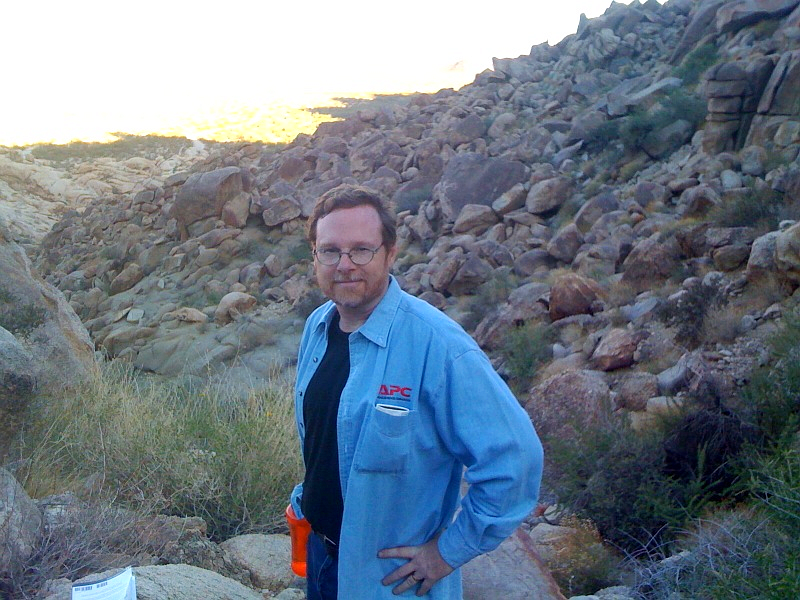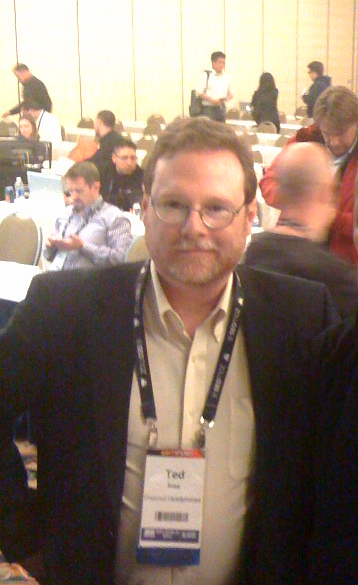 It’s the first day of SMX East!
It’s the first day of SMX East!
Rhea and I arrived yesterday after a gorgeous train ride down from Troy with the Hudson River ablaze in Fall colors. Then we hit the heat wave that is Manhattan and we’re ready to peel off layers in the conference rooms. A little heat won’t stop us from bringing you several in-depth interviews with some of the most compelling speakers SMX (and the industry) has to offer. If you missed it, check out our initial interview with the amazing Akvile Harlow of Third Door Media. Now let’s kick things off with our friend, Ted Ives.
With the search landscape ever changing, and the recent announcement that Google is moving to 100% secure search, creating a not-provided world for internet marketers everywhere, sitting in on Life Beyond Google: Diversifying your Digital Marketing seemed a natural choice. Matt McGee moderated, Matt Ballek from Magnet Media, Brandon Hassler from 97th Floor, and Ted Ives the Principal behind Coconut Headphones all presented, each suggested actionable ways to approach diversifying your marketing strategies. We have a few takeaways below, but we also had a chance to interview Ted earlier this week about broadening your marketing focus.
SMX East 2013 Day 1: Life Beyond Google Takeaways
Let’s kick things off with an overview of Ted’s presentation–the future of diverse digital marketing is all about leveraging content through social platforms, email marketing, and paid, and paying close attention to audience engagement.
- Ted advocates creating beefy content that you can repurpose, split up, and promote in a variety of ways. Create white papers through addressing customer concerns, client processes, or other Q&A issues directly tied to the business.
- Pay attention to where your conversions are coming from with paid search. Gather every keyword from the last 12 months that converted, and create a two minute video for each addressing that query. Alternately, Ted suggests interviewing an internal expert, then transcribe it, and use that content to create in-depth Q&As. The inspiration for your content is already out there, if you ask the right questions.
- Matt Ballek took the audience through refocusing your Youtube marketing efforts by consistently utilizing the process of: producing, optimizing, promoting, and engaging.
- With Youtube, the ultimate goal should be engagement, not views. You need to focus on optimizing for engagement through targeting for each type of viewer: evergreen videos and tutorials for casual viewers, Q&A and industry news for subscribers, and bonus videos and collaborative videos for your super fans.
- Brandon Hassler suggested two platforms for promoting content to drive traffic: Slideshare and Pinterest. With Slideshare, by creating one piece of content that can be split up into slides, you can repurpose your content, and drive traffic to the site through in-slide twitter embeds, and click through buttons that send the user to your site to view the full infographic.
- For Pinterest, you want to be focusing on creating instructables for the DIY crowd. Moreover, you want to be creating instructables that are a just a little too large to be viewed within Pinterest. An instructuable that’s at least 500 px wide and 2,500 px long looks attractive in Pinterest, but can’t be viewed in full, driving the user to your site.
The key to life beyond Google is diversifying your platform marketing, and understanding the audience engagement for each platform. Make sure you are using the right metrics, and appealing to your audience in a way that gets more than just a view.
Ted Ives on Diversifying your Marketing Campaigns
Ted is a really smart guy, so if you have the chance to introduce yourself before the conference is over, we highly recommend doing so. Even if you don’t have the chance to say hello, you’ll want to read up on Ted’s thoughts on diverse marketing campaigns, chasing the algorithm, marketing in a 100% not-provided world, and the intersection of SEO and PR.
What should a diverse digital marketing campaign include in life beyond Google?
You need to think about not only channels, but about everything. I think a lot of people look at this topic, and they think I need to go find traffic from some other channel, but you really need to think about the whole process.
There was a guy named Claude Shannon who basically invented the field of information theory, and in the ‘40s he put together a model for communication. It was a very simple model of a person sending a message. You have a message, a channel, a receiver, a person who receives it, and then noise coming in kind of from the side, that you have to get attention beyond.
You need to think about marketing as that whole process. You have certain messages, channels, and an audience. You need to diversify your messages. You should have different formats, different types of material, different actual messages, different angles that you take, presented different ways.
Diversifying your channels, which is, what most people think about when they think about life behind Google, is just diversifying the channels, but that’s only one component. Then you need to diversify the audience. Going after different audience segments, thinking about who is interested in your product or service, why are they buying, why are they not buying?
If you read any of the persona stuff by Mike King, he’s got fantastic stuff about how to think about audiences, by combining Facebook data with Google analytics data. There are some interesting ways.
My message, so to speak, is you have to worry about message channel and audience to do all that.
You have a lot of experience scaling marketing efforts for enterprise level clients, can you talk a little bit about that process?
Yes, it’s interesting. Enterprise folks have pretty similar issues to medium and even small clients; a website architectural problem is sort of the same no matter the size of the organization. It’s funny. You’ll see a huge company that hasn’t resolved their “www” version of the domain to “ww1,” or opposite. They’re almost viewed like two separate websites from a page rank standpoint, and then a little company will have the same problem.
One of the problems is the same, but how they get fixed is what differs. Large companies, enterprises, you have more bureaucracy; it’s more about getting buy in, convincing other groups to do work for you. How do I get changes to the website done and how are they approved? Those sorts of things. Things like keyword research, and a lot of the other techniques really are the same, but it’s what you sort of do with the output that differs. It’s more about organizational behavior stuff with enterprises.
With so many recent Google updates, do you think it’s dangerous for digital marketers and webmasters to chase the algorithm? Or is there still value in trying to positively influence ranking factors through on-site/off-site tactics? Why or why not?
That’s a pretty broad, wide-open question. I don’t see how digital marketers and webmasters can afford not to chase the algorithm a little bit. You can’t just ignore what’s there, because it’s going to affect you, so I think people sort of think that they have to some degree.
What I think people miss is future proofing. You need to do things in a way where, let’s say Google makes a change down the road, you’re not going to get a hammer coming down on you because you were doing something stupid. I’m a big advocate of future proofing. You put yourself in the mind of Google’s spam team. How would I go after something? Then, just don’t ever do any of those things.
A real good rule of thumb I like to use is Wil Reynolds has this concept, “real company sh*t”. I am a huge advocate of that. You should basically be doing things that are normal for a real company to do, and guess what? If you actually do those things, you’re doing real marketing anyway, right? For instance, press releases, a lot of people did press releases for a long time.
Then Google makes some announcement, something about press releases and links and things. The industry says, oh press releases, those are out. Well, you have to look at what they said. I think, a while back there was some comment about links from press release sites are devalued, and if you really think about what that means, it’s affecting places like PRNewswire and PRWeb, maybe the page rank levels that you get from links on their own sites is sort of lower than otherwise.
I don’t think people do press releases to get page rank from PRNewswire. They do press release to get the word out, and get in front of people. As long as you’re getting the word out, getting in front of people, maybe you’re not doing anything crazy with anchor text, and then maybe we can talk about that a little later, I think press releases are totally valid tactics.
If you had been doing for press releases for many years in a dumb way; just having tons of crazy anchor text in there, pumping out press releases for no reason, really, other than to try to get links to individual pages. Yes, you probably got hurt or are going to get hurt at some point, so future proofing and not doing anything silly is a smart move.
What are some techniques for increasing traffic outside of search that you’ve seen a good ROI on for yourself or clients?
There are a lot of ways. I would say for a lot of people who are relying on organic traffic, there are a lot of things they should be doing. One is to immediately start trying out paid. Figure out if paid search can work for you. That’s sort of another leg on the marketing stool, very straightforward to add-ons. It doesn’t always work for everybody. Sometimes I’ll actually disprove for you, for your business model, for your conversion rate, for the way your website is; paid is just not going to work. You need to go redo the whole website.
Often it works well, and sometimes it hits it out of the park, so I would say stand beyond organic to paid, obviously from Google to Bing and things like this. E-mail marketing, especially if you’re a B2B company, I’m a big fan of marketing through audience management, try to grow your audience. You sort of acquire them and sort of engage, monetize, and retain. It’s a circle that goes around and around.
Your audience database is, really, a major asset and you should be treating it like one, and improving it, and cleaning it up, and constantly adding to it, and really managing your audience, rather than just sort of bringing leads in. You’ve got these existing people, why not leverage them? Then, social, obviously social, I don’t even know where to start talking about social, there’s so much there. Paid, e-mail marketing, social; those are the main alternatives for people.
Ted on Google’s recent 100% not-provided transition
Do you have any tips for digital marketing in this new 100% not-provided world? What are some of the strategies marketers can use to that will inform marketing and content without that keyword data?
I’m actually very happy you’re asking this question, because if you had asked me 24 hours ago, I would have had to have said, gee I have no idea what you should be doing here. I’ve been following the news like everybody. I’ve been reading what people have been saying for months about this, and myself, I’ve been kind of ignoring it until this week. I mean people can afford to hide under a rock and not worry about it too much, but at this point you’ve got to react to it.
I just saw Dan Shure, over at Evolving SEO, give a talk last night, actually, for Newport Interactive Marketers; it’s a really neat organization. It has people from around that area interested in interactive marketing, and they do talks. Dan gave a talk on a bunch of SEO stuff; he had a big chunk of it dedicated to talking about this not provided issue. He had two points:
One of them was the Google Webmaster Tools, you do still have some of this data in there and you can hook your webmaster tools account into Google analytics and you can get some of it that way. If you then do some drilling around and you can get a rough idea on a bunch of the keywords.
The other one, which I had not heard of, is apparently in Google analytics there is a setting somewhere to track keywords from site search on site. Let’s say you have Google Site Search set up for your website and you use Google searches, you can track that. The other thing is it doesn’t even need to be a Google site search.
The most site search techniques use a similar URL structure, so the keywords are separated by pluses and the same parameters and everything, so apparently it’ll actually work with a lot of them. You can actually track on site search stuff, which is kind of fascinating. That’s another interesting way you can get some of that data. It’s definitely going to be a challenge though, for a lot of people on many levels just having a lot less data.
Ted on the Intersection of PR and SEO
Your recent series of posts on Search Engine Land focuses on public relations–how important is it for digital marketers and SEOs to leverage public relations? Do you have any tips for coordinating SEO/PR efforts (without spamming PR Web with optimized anchor text links)?
I think the key is you don’t want to be just putting press releases out and then hoping something happens. Ideally, if a press release is coming out, there’s real news, it’s newsworthy, there’s probably somebody out there who cares about it. If they’re traditional journalists, you can say this is embargoed until such and such a date, please don’t write about it. If they’re bloggers, they may not even know what you’re talking about if you say the word embargo. It depends on who you’re dealing with. You reach out ahead of time, coordinate, and tell people that you’ve got some big announcement coming out, and maybe they’ll write about it. I don’t think that’s any kind of bad link building.
You’re doing the same thing that Proctor and Gamble does every day. If they come out with a new type of shampoo, they tell everybody about it and people write about it, because it’s interesting. Do normal company stuff. Do not put a lot of very specific anchor text links in there. I think it’s better to have links to the company, or home page for the most part. For anchor text I would just use the name of the company, maybe the brand name, or just what people call it, a naked link.
The one thing with press releases, they do get distributed around the web, and then you also have scraper sites, they may scrape these press releases and they could end up who knows where. You don’t want to have a press release with problematic anchor text showing up in fifty places down the road that you have no real way of removing. I would keep it real, keep it legit, and just be real with it.
Ted on Structured Data
A year ago you published a piece after SMX East on microformats and how structured data is anti-human and an admission of failure. A year later, do you still feel the same way?
Yes, absolutely. I think it’s a huge unknown scandal that Google has absorbed most of the PhDs in the world that understand artificial intelligence, search, natural language, all these sorts of topics. They’ve absorbed all these people, and what are these people doing? I don’t see what these people are working on. I’m not seeing innovations out of them. I though these people were supposed to be all writing classifiers so that computers could figure stuff out and classify things and figure out what’s going on. Why is it up to me, and everybody else in the industry, to classify the world for Google, and to structure all the stuff, and then mark things up, and highlight things on the screen, and enter things into databases?
Some level of structure is reasonable and to be expected, but just marking up the hell out of everything is to me a big disappointment from what I thought the promise of computers was going to be. When I was a kid in the early ‘80s I thought our computers were going to figure all this stuff out and instead, we have to put all this mark-up five different ways on a page; some of which a person can read, some of which they can’t. There’s a special one for Facebook.
There are all these different standards and things going on, and I don’t know why Google can’t look at a recipe and recognize it’s got a bunch of steps, it’s talking about flour and milk and eggs, it’s probably a recipe. These are probably the steps. These look like times. Why do you have to markup a recipe; shouldn’t it just figure it out? That kind of thing is very disappointing to me.

What SMX session are you looking forward to the most, and why?
I’ve looked through, and the one that has jumped out is a session on day three, “Content the Good, the Bad, and the Ugly,” and that’s a panel. Dan Shure, he’s a good buddy of mine, so I’m looking forward to hearing him again, but also Jenny Halasz. I’m reading a lot of her stuff on search engine land and elsewhere lately, and frankly she is wicked smart and I’m really interested in hearing what she has to say because I don’t think I’ve ever heard her talk on anything before. So, Dan and Jenny are the two folks I’m looking forward to listening to the most.




